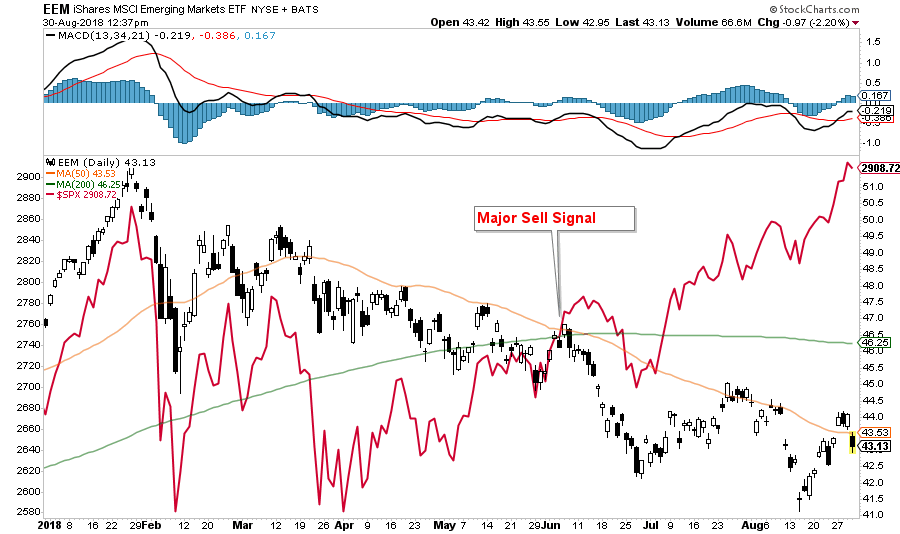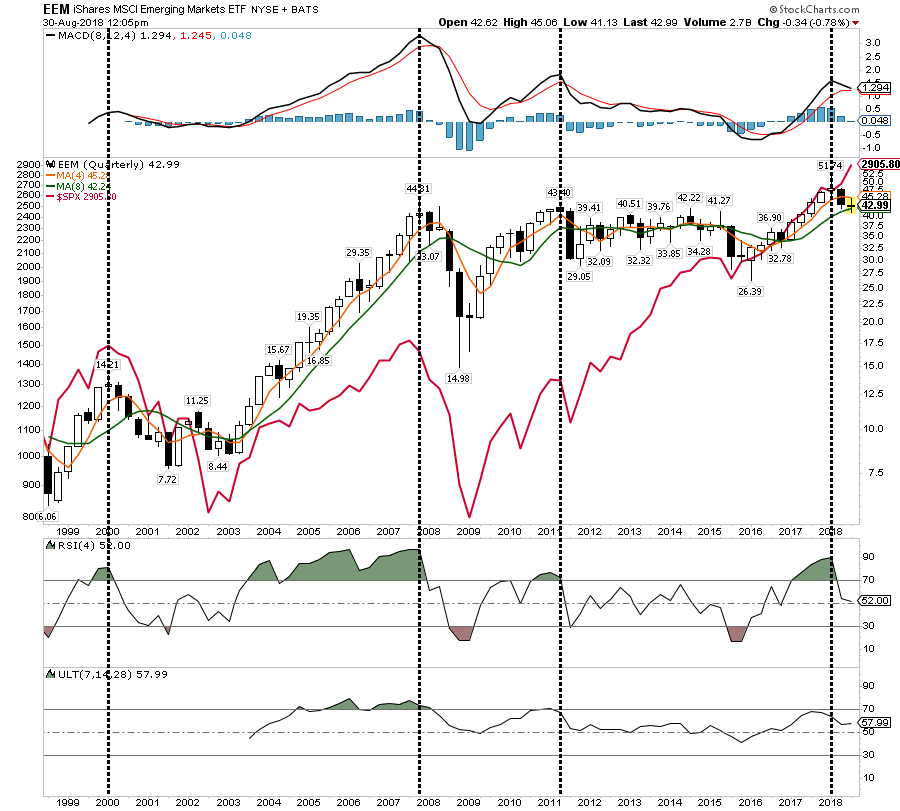
I have been, and remain, bearish on emerging markets for three reasons:
I recommended in January of this year to remove all international and emerging market exposure from portfolios and have been updating that position since each week in the newsletter:
“Emerging and International Markets were removed in January from portfolios on the basis that “trade wars” and “rising rates” were not good for these groups. With the addition of the “Turkey Crisis,” ongoing tariffs, and trade wars, there is simply no reason to add “drag” to a portfolio currently. These two markets are likely to get much worse before they get better. Put stops on all positions.”
This has been the right call, despite the plethora of articles suggesting the opposite.

For example, in January, Rob Arnott stated:
“Look at value in emerging markets. In the U.S., value is trading about 25% cheap relative to the market. In emerging markets, it’s close to 40% cheap.
That’s pretty cool. If you can buy half the world’s GDP for nine times earnings or buy the U.S. for 32 times earnings, I know where I’m going to put my money.”
Now, I am not arguing Rob’s point. But, my position is simply that the economic dependency of emerging markets on the U.S. is extremely high. Therefore, when the U.S. gets a “cold,” emerging markets get the “flu.”
Over the last 25-years, this has remained a constant.

In 2000, 2007 and 2012, emerging markets warned of an impending recessionary drag in the U.S. (While 2012 wasn’t recognized as a recession, there were many economic similarities to one.)
Currently, emerging markets have once again diverged from the S&P 500 suggesting economic growth may not be as robust as many believe. While a 2-quarter divergence certainly isn’t suggesting a “financial crisis” is upon us, it does suggest that something isn’t quite right with the global economic backdrop.









Leave A Comment